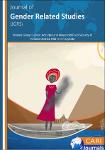| dc.description.abstract | Purpose: This study examined the contribution of Women Group Gardens to household food security in Kwania District; specifically, the study determined the effect of women group gardens on food availability, food accessibility, food stability and food utilisation.
Methodology: The study adopted a cross-sectional study design, which employed a mixed methods approach of both quantitative and qualitative methods. The study population consisted of 122 respondents, which included District Commercial Officer, District Agricultural Officer, Sub county Development Officer, Executive and members of the women group gardens in Inomo Sub-county. Both the Simple random sampling technique and purposive sampling technique were used to select a sample of 122 participants. The researcher adopted Self-Administered Questionnaires to collect quantitative data and an interview guide to collect qualitative data. Both descriptive statistics and inferential statistics were used to analyse numerical data. Content analysis was used to analyse qualitative data.
Findings: The findings revealed a statistically significant positive relationship between women group garden activities and household food security. Further, it was revealed that women group garden activities had a significant effect on food availability, food accessibility, food stability and food utilisation.
Unique Contributions to Theory, Policy and Practice: It was concluded that women group garden activities significantly affects household food security in Inomo sub-county. The study recommended that, for improved food security in households in Inomo Sub-county, the Sub-county authorities should sensitise the local community to strengthen garden groups so that they can gain support from the government as well as enhance food security. The results of this study are valuable to local leaders given that the government of Uganda is currently implementing a number of poverty reduction interventions. | en_US |

